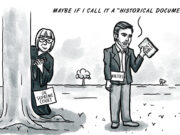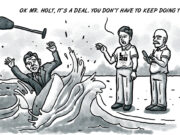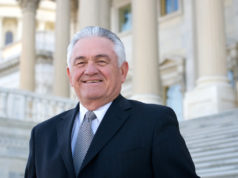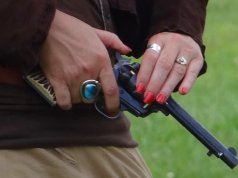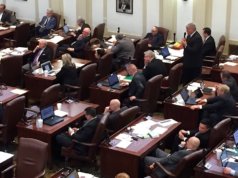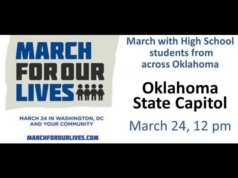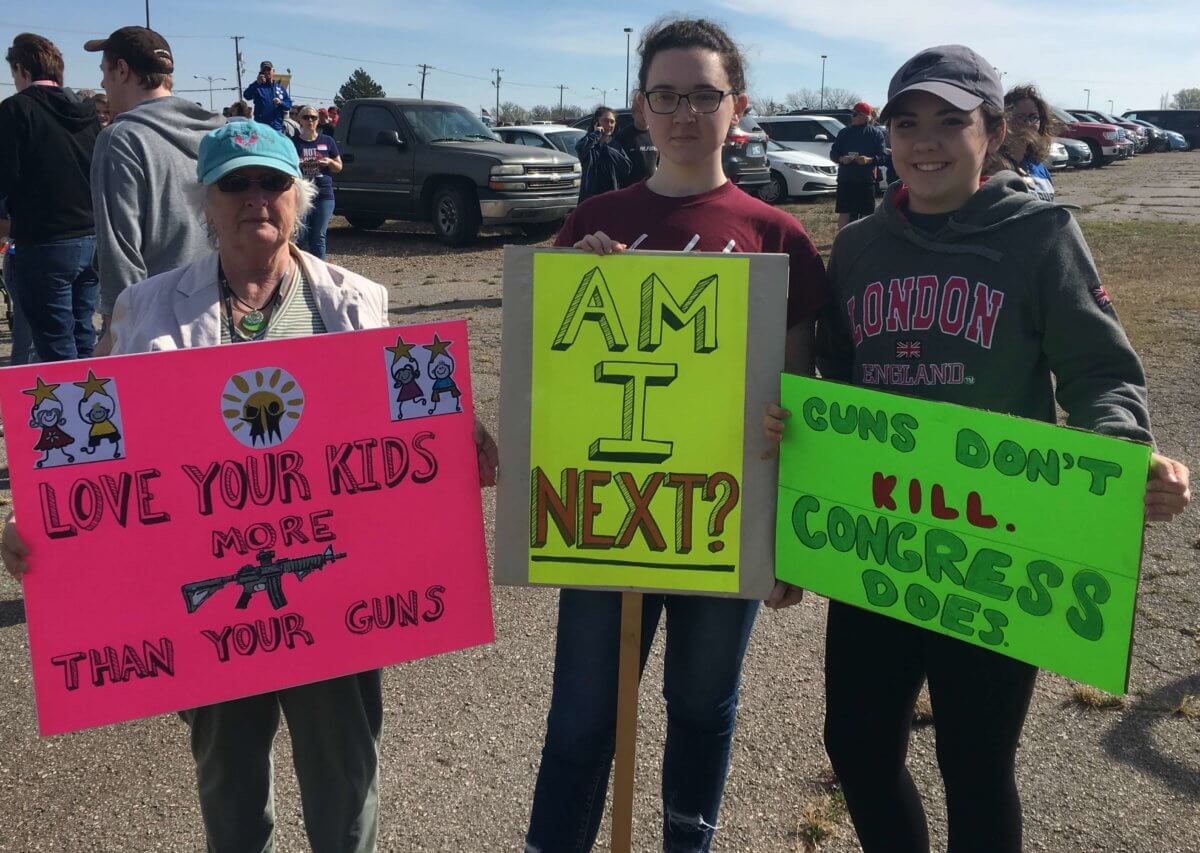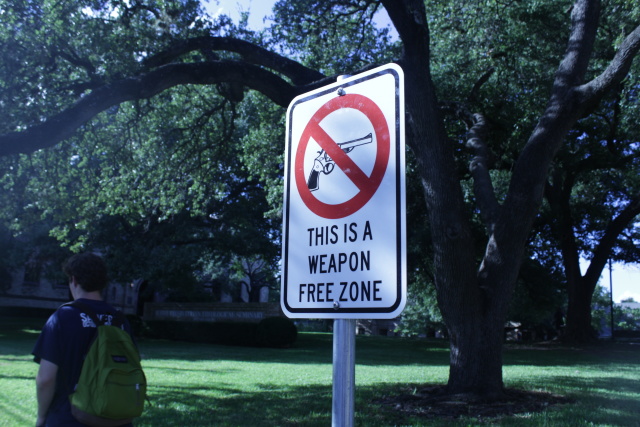

AUSTIN, Texas — Sitting next to a skateboard in his skinny jeans and Converse sneakers, 22-year-old Jacob Williamson looks more like someone you would find making lattes at a campus coffee shop than shooting targets at a gun range.
“I don’t really fit the stereotype,” Williamson said while lingering on a patio overlooking the University of Texas mall. “I think that honestly kind of helps. When I show people like, ‘Hey, normal people can want to defend themselves’.”
Like many college students, Williamson tends to lean left politically — except when it comes to his relationship with firearms: He is among an estimated 31 percent of 18- to 29-year-olds in the U.S. who own at least one gun, and he is part of an even smaller percentage of college-age students with a license to carry a concealed weapon.
Beginning August 2016, anyone with a concealed carry license will be allowed to bring his or her firearm to public universities in Texas. In an eerie coincidence, the law will go into effect almost 50 years to the date of the UT Tower shooting, the first mass campus murder in U.S. history.
Texas Senate Bill 11, also known as “campus carry,” was passed this year despite strong opposition from professors, University of Texas System Chancellor Bill McRaven, and students. More than 5,000 of them have already pledged to partake in a creative dildo-carrying protest with the battle cry “cocks not glocks” on the first day of classes.
Many credit the passage of the bill to extensive lobbying by the National Rifle Association (NRA), which has provided significant campaign contributions to Texas legislators.
The rhetoric of the NRA regarding the campus-carry issue has played on the public’s fears of recent mass shootings, such as the ones at the movie theater in Aurora, Colo., in 2012 and at Virginia Tech University in 2007. There was also an incident in 2010 when a 19-year-old University of Texas student fired shots at the ground before using his assault rifle to take his own life on the sixth floor of the university’s main library.
Student motives differ from NRA rhetoric
Williamson is the former leader of the UT Students for Concealed Carry group, but his motive for wanting to take a gun on campus is different than the narrative of the would-be hero rendered defenseless against a crazed shooter — one that the NRA packages into its pro-gun talking points.
Instead, Williamson views his right to have a gun on campus as almost a matter of personal protection, even convenience.
“For me, campus carry is not about school shootings,” Williamson said. “The primary reason for me, that I see campus carry is a necessary thing to have, is the commute to campus.”
He admits that, although the campus is very safe, there are times when he has left to walk home, or through an alleyway, only to find someone following him. While he can’t bring his handgun to school yet, Williamson explained that he regularly “carries” during activities as quotidian as dinner out with friends. He hopes never to use it, but says having a concealed gun makes him feel more secure.
“I know I have something that at the very least equalizes that level of power,” Williamson said.
‘Entirely hypothetical’
Deborah Azrael, a researcher at Harvard Injury Research Control Center, has studied the relationship between access to firearms and gun-related injury for more than 20 years. She agrees with Williamson that the new campus-carry law is not about school shootings, and she admits that measuring the effect of concealed handgun-carrying students in either preventing or contributing to a shooting incident would be incredibly difficult.
“We don’t have good information, because it’s entirely hypothetical,” said Azrael.
But there are more real dangers she believes could result from the legislation.
“Anything that increases access to firearms, however that access is generated, increases risk of suicide, increases risk of homicide, and almost certainly increases risk of things like gun brandishing and gun theft,” Azrael said. “That evidence is really incontrovertible.”
Whether a student has a license to carry a concealed weapon makes little difference, Azrael pointed out, offering that even police officers will miss their targets about 50 percent of the time.
She also said the background check necessary for a 21-year-old to get a concealed-carry license in Texas would be insufficient, particularly since young people may not have had the time to amass any sort of record that could be a potential red flag. In general, background checks are simply adjudicative facts about people, such as felonies, serious substance abuse issues, or whether they have been involuntarily committed to a mental hospital.
“You can be frankly psychotic, and dangerous, and as long as you say, ‘Yes, I’m willing to go to the hospital,’ it won’t appear,” Azrael said.
In addition to insufficient background checks, another of her concerns stems from the rhetoric of concealed-carry classes themselves, which hardly ever address suicide risk.
“It’s all about defending yourself from strangers,” she said.
‘Armed with reason’
Ellen Spiro, a filmmaker and professor of Radio-TV-Film at the University of Texas echoed Azrael’s sentiments about increased suicide risk. She is no stranger to the emotional issues facing students on campus.
“I’ve had potentially unstable students in my office,” Spiro said, “including one who was suicidal. And my first question was, ‘Do you have a gun?’ Fortunately, he did not, and I walked him over to the mental health center.”
Spiro is a member of Gun-Free UT, a group of students and professors “armed with reason” who hope to have the campus-carry law repealed. The group, which has collected more than 6,000 signatures, held a protest in the shadow of the tower on the UT campus only moments before news spread the morning of a shooting at Oregon’s Umpqua Community College.
“The license doesn’t make anybody safer,” Spiro said. “More guns means more potential violence.”
Williamson, has heard these arguments before, and feels that the stresses of campus are overblown.
“If you’re the kind of person [who is] okay with killing people because you got a bad grade on a test, you having a license to kill people probably is not going to stop you from doing that,” he argued.
And contrary to what many in the NRA believe, Williamson may not step-up to be the hero in that situation either, explaining that the concealed-carry class he took taught him to have respect for his gun and to avoid using it at all costs,
“They teach you to be the most non-confrontational person. When you’re carrying, you’re Buddha.”







